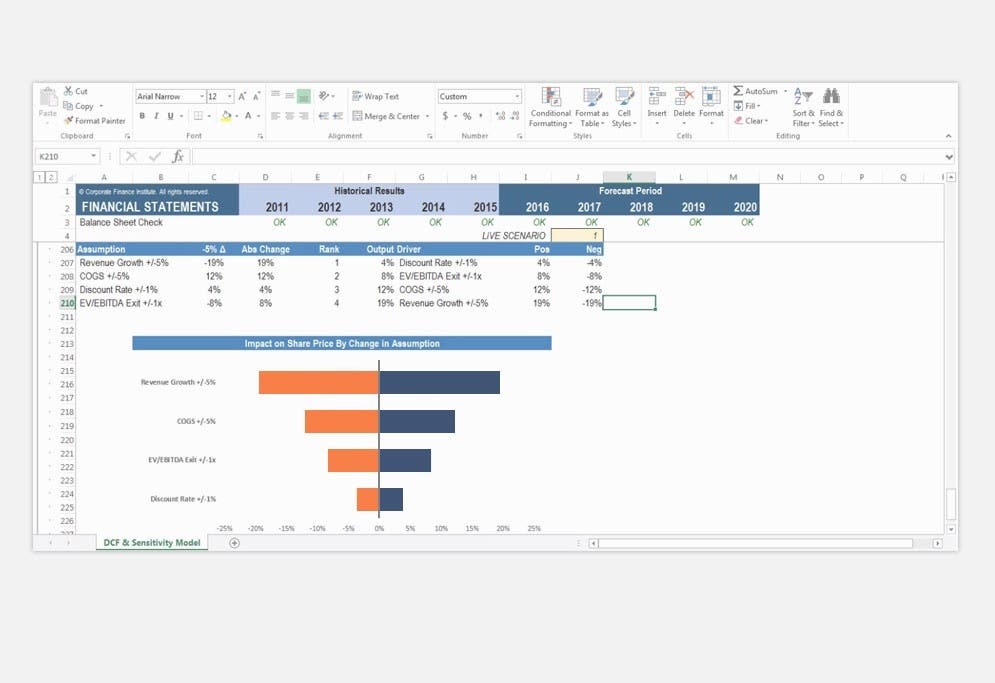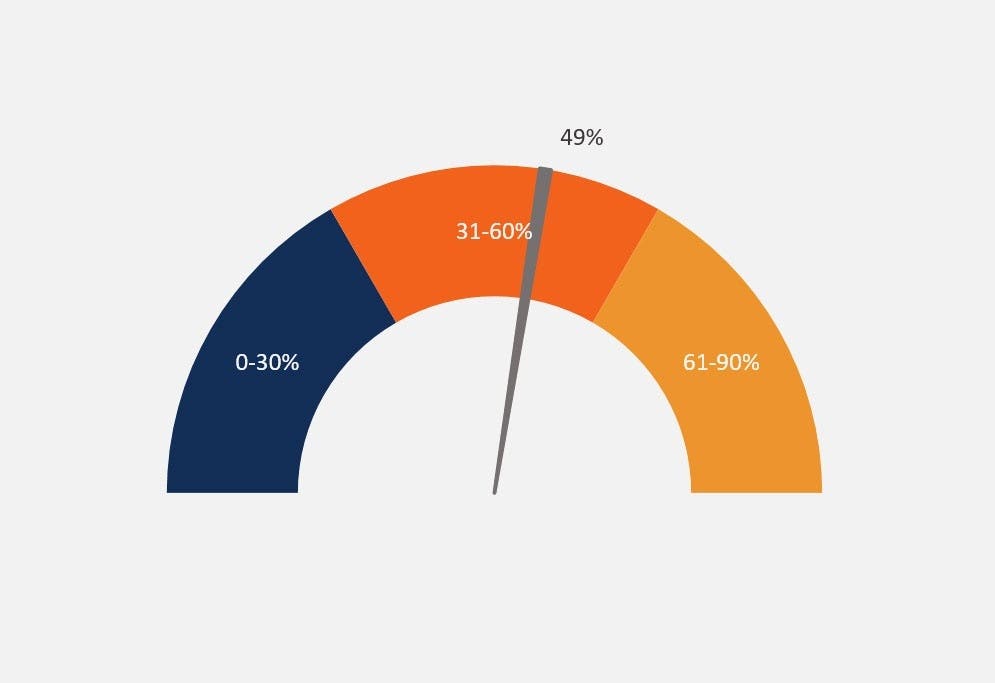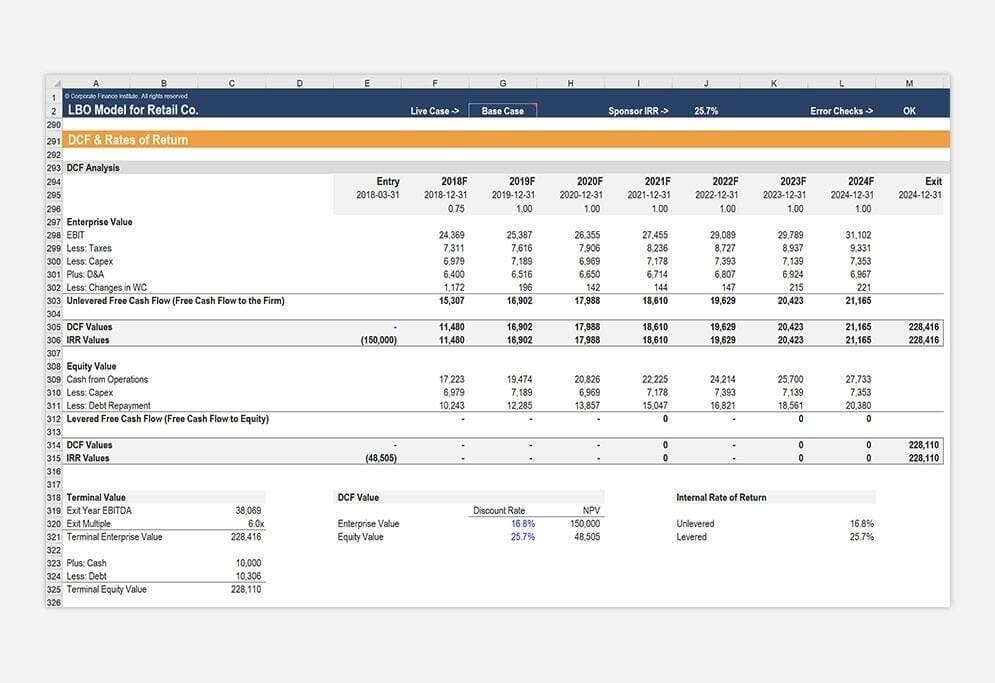Careers in Finance: Chris Ortega
In this episode of FinPod, we speak with Chris Ortega, the CEO of Fresh FP&A. Chris shares his journey from a marketing major in college to a seasoned finance executive, eventually founding Fresh FP&A. He emphasizes the evolving role of technology in finance, highlighting how tools like RPA, predictive analytics, and machine learning can enhance the efficiency value of finance teams.
Listen in to gain valuable insights into CFO responsibilities and the essential skills needed to succeed in finance.
Transcript
Asim (00:13)
Hello and welcome to CFI’s Careers in Finance podcast. I’m Asim Khan with CFI and I’m joined today by Chris Ortega, the CEO of Fresh FP &A. Chris, welcome to the podcast.
Chris Ortega, Fresh FP&A (00:26)
Thank you for having me. Excited to be here.
Asim (00:28)
It’s an absolute pleasure. So we’d love to hear about your journey and how you got to where you are, but let’s, why don’t we start at the present. Tell us about Fresh FP &A and a bit about your business model and some of the work that you do.
Chris Ortega, Fresh FP&A (00:42)
Yeah, so I lead a global fractional CFO and advisory service company called Fresh FP &A, and we empower small to medium sized businesses, typically ranging from about one to about $80 million in revenue that are seeking financial clarity and growth. So we serve as their strategic CFO and their strategic finance function to help them build, shape and scale their finance organization. So I’ve been leading the business for a little over three years and
I took the leap of faith after spending about 20 years in accounting, finance, FP&A, and financial leadership, primarily building and growing businesses. So I took the leap of faith and lived out my initials as CEO. So that’s currently what I’m doing at Fresh FP&A.
Asim (01:22)
That is excellent. And then, so do you have a background in accounting, I presume? Is that how you got your start? Yeah.
Chris Ortega, Fresh FP&A (01:28)
Yeah. Yeah. So I started my career, originally in college. I’ll be pretty quick. Originally in college, I was a marketing major. And, then during the time when I was in college, one of the biggest accounting thing changed, which was Sarbanes-Oxley. You had Enron, you had Anderson going away and it was, it was like everybody was getting jobs in college. So I switched over to accounting and finance and I began my career in public accounting at Ernst & Young. Really, really great experience here in Indianapolis.
I got to work with and do auditing for a lot of Fortune 1000 companies. That was pretty much the first chapter of my career. I spent mostly in accounting, corporate public accounting, and also like accounting at a private company. And then the middle half of my career is where I spent most of my time in like high growth, finance and FP&A organizations, both in like large public from a drug development company, all the way to like SMB startup businesses. And then the later stage of my career,
is where I spent most of my time building and shaping from a financial leadership perspective. Most recently, I was at an international marketing platform company, helped build that up and sold that off to acquisition to SAP. So those are pretty much the three chapters of my career, accounting, finance, FP&A, and then financial leadership. And now entering in this new chapter of my career, CEO of Fresh FP&A.
Asim (02:50)
That’s great. When we spoke offline, you said FP and AES, of course, it’s financial planning analysis, but in your case, given the value you bring to your customer base, it also stands for, I believe you said financial partner and advisor. Can you tell us about that aspect of your work?
Chris Ortega, Fresh FP&A (03:09)
Yeah, so looking back over my career and looking at the value we wanted to provide to SMB businesses, right? Like when you think of traditional FP &A, which is that financial planning analysis, we have entered the area of technology where technology should be doing that a lot faster, a lot more efficient than a person. And really where the value at and really the fresh perspective that we’re giving to FP &A is going to be that financial partner and advisor. So, for me, I think it’s a mixture of those quantitative skills but also
even more reliance on those qualitative skills, which is communication, collaboration, turning complexity into clarity for your business partners. So to me, that’s why when I was thinking about starting the business of Fresh FP &A, we wanted to name it the Fresh Financial Partners and Advisors to bring that fresh view to finance. So that’s our version of FP&A.
Asim (04:00)
Interesting. And so I’m just going to latch onto something you said. You said that the FPNA bit, the modeling and all that, you’re saying technology could do that faster, perhaps better than humans can. And I presume you’re talking then about AI.
Chris Ortega, Fresh FP&A (04:18)
Yeah, not necessarily AI, but when you think of like the FP&A, the traditional financial planning analysis, there’s so many great technology platforms that are out there, right? So, you know, you shouldn’t be spending your time, energy and effort doing all your Excel modeling, right? There’s great tools, there’s great resources, whether that’s budgeting and planning, whether that’s RPA technologies, whether that’s GNI, whether that’s prescriptive and predictive analytics, or that’s machine learning. I think one of the key things for the office of the CFO right now is like we’ve…
actually entered a great age of technology adoption and technology that can compliment us. So you don’t want to spend your high value time, energy and effort or your high potential, high performing resources on a lot of that tactical level work. You want them to be involved in that strategic level work. And in leading finance teams for over 20 years, technology has always been a compliment to me. It’s got us out of the data gathering, the refreshing, the…
waiting to models to update and get us into that higher strategic value, which is what I mentioned, being a great communicator, collaboration inside the business and turning complexity into clarity. Like those are great skillsets that the business values. So to me, that’s where technology and we’ve entered the age where there’s generative AI or whole suite of technologies that actually enable the office of the CFO to be that valued added partner.
Asim (05:40)
So it’s more than about interpreting data, applying critical thinking. Is that it, rather over model building and kind of seeing what the results give you?
Chris Ortega, Fresh FP&A (05:51)
It’s a very simple framework and I’ll say it’s called the decision cycle, right? And it’s processes drive data, data to information, information to knowledge, knowledge to decision making, right? Where you don’t want to spend all your time is the processes of getting that GL data, turning it into information, which is a financial statement, then getting that financial statement and turn it into knowledge, right? You want technology to accelerate you from process to information, process data information.
And where you want your people to be focused on that higher value of that decision cycle, which is the knowledge and, ultimately, the decision-making. So that’s an easy framework to take. Get technology, do the process, the data, the information, put your people in the right element and have that knowledge to ultimately make a data-driven business decision. That to me is the recipe and where technology for finance professionals and CFOs can help compliment them in that decision-making framework.
Asim (06:46)
Yeah, and I could see where small and medium businesses are concerned. That would be kind of a force multiplier, right? It gives a lot of leverage to a CFO’s office. That would be smaller than, like, say, I don’t know, a Pfizer or something like that.
Chris Ortega, Fresh FP&A (07:01)
I don’t think it limits itself to just SMB or Enterprise, right? Like if you’re at an enterprise level company and you’re not thinking about ways of adopting technology to make you more efficient, then it’s like you have access to the capital, right? SMBs primarily don’t have that ability to get those best in class technology. So when you’re enterprise and you got the resources, you got the commitment, like you can move a lot faster in terms of financial transformation. But I also like working with SMBs where it’s like,
there is no canvas that has been painted, you can go in, get the right people in the right seat, doing the right level of work, bringing the right level of partnership to the business, adding in technology, that’s really where you transform. And I’ve done it in small, medium-sized businesses, all the way to like enterprise pharma publicly traded companies.
Asim (07:50)
Excellent. And this is kind of the current state of play for the CFO’s office. Can you give us a peek over the horizon? And where do you think the evolution of this is going to go?
Chris Ortega, Fresh FP&A (08:04)
Yeah, if I think looking at the crystal ball for the next five years of the office of the CFO, I think one of the most important assets the CFO is going to have to take off and not to say it’s not going to be important in the future, right? The chief financial officer always going to be the primary focus, the primary element. But another hat that CFOs of the future have to put on is that chief future officer, right? Thinking about the future of the business, right?
When you think about finance and the office of the CFO, everything stops with the numbers, right? Sales marketing role, instead of operations, IT, HR, everything comes to that. So when we’re able to get beyond just providing the numbers and the updates, and we’re able to think about how the data, the information, what did we say we’re gonna do and what did we do? And we answer that question of what are we gonna do about it? That’s where we…
really shift and get outside of that stereotype of just being the Excel warriors and the number police and the budget constraint people, right? Go be valued added partners. So for me, when I think about technology, when I think about this shift in terms of mindset and skillset for resources, when I think about this third avenue of being valued partners in the business, that’s where CFOs, what I like to call fresh CFOs of the future are gonna win big. And that’s the biggest value we’re gonna have. And it’s an exciting time.
Asim (09:25)
Absolutely sounds like it. We get a view of it from where we’re sitting and it does seem like it’s a dynamic moment to be in. So we have a lot of people who, members and non-members alike, who watch these podcasts and we always like to leave them with a bit of advice. You’ve had a very interesting and successful career journey. If you could…
pick three pieces of advice to give someone who’s at the early stages of their career. Anything you can leave us with.
Chris Ortega, Fresh FP&A (10:02)
Three things. First one, ABC ‘s a finance. Always be curious, find ways. Curiosity is a superpower. The opportunities you have to do that and just stay naturally curious throughout my entire career, that’s one thing that’s really helped me. The second thing is, is this is gonna be pretty wild and I’m probably gonna get people message me and say, Chris, that was crazy. Seek failure. Let me say that again. The reason why I say seek failure, some of the biggest…
comfort zone expansion, some of the biggest moments that you’re gonna learn in your career is getting over that fear of failure. Failure is just the first step in the process of learning. So once you kind of get over the fear of taking those leaps or failure, you’ll open yourself up to so much more learning. There’s only two options that I look at in life. I’m either gonna win or I’m gonna learn. I only lose if I don’t learn. So that’s that second piece. And the third piece of…
advice I would give you in your career. Do not do not Get infatuated with the titles the power the money Find your North Star find what motivates you find what gets you passionate and consistently everyday work towards that so for me Those would be my three career advice if I if I could go back 21 years ago when I started my career That’s what I would go back to always be curious right seek failure
and find opportunities and ways to challenge yourself and continue to be a value -added professional. And don’t focus on what matters and what makes an impact. Don’t focus on the vanity thing. So that would be my three career tips to help those thinking in their career development.
Asim (11:44)
Well, those points are well taken. That’s some pretty strong advice. And thank you very much, Chris. Thank you. Thank you for your time today. And I hope to see you again on one of our podcasts.
Chris Ortega, Fresh FP&A (11:48)
Thank you.
Thank you so much for the opportunity. Really appreciate it.
Asim (11:57)
It’s our pleasure.





